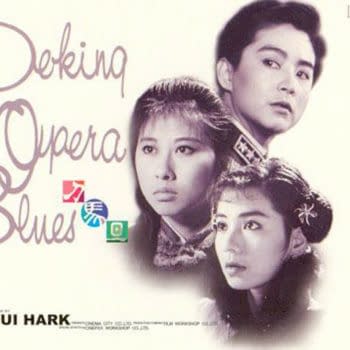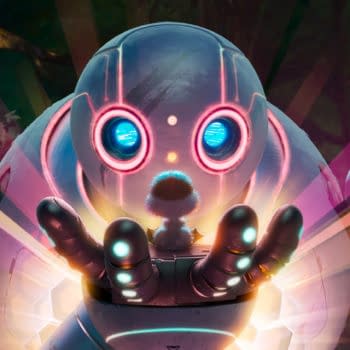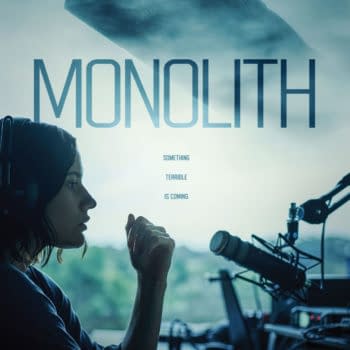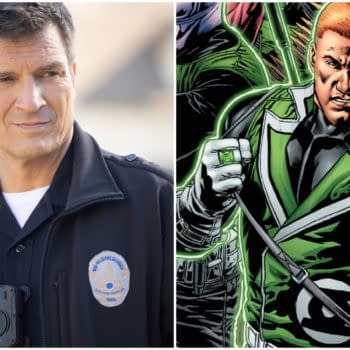Posted in: Movies, Recent Updates | Tagged: entertainment, film, john carpenter, Lost Themes, music
John Carpenter's Album Lost Themes Is A Haunting, Rocking Journey
By Dylan Gonzalez
"I can play just about any keyboard but I can't read or write a note."
-John Carpenter
At this point in his career, John Carpenter has to have developed a firm grasp on the ability to write and create music. When I first started delving into Carpenter's filmography, I was surprised to see he was often the man behind his film's soundtracks too. At the young age that I was watching these films, that astounded me. My conception of filmmaking was that there was a clear-cut job for everybody. A director also scoring his films? That was unheard of to me. But what would a ten-year-old know?

When I heard that Carpenter was finally branching out to release an album of his own, I was psyched. It just seemed fitting that after all these years, Carpenter was giving us an album without the confines of a story. It would be his unique approach to music. Lost Themes was envisioned not as a soundtrack to a nonexistent film, but as Carpenter getting free reign. It was his chance to really flesh out the music he uses in his films and give it its own identity.
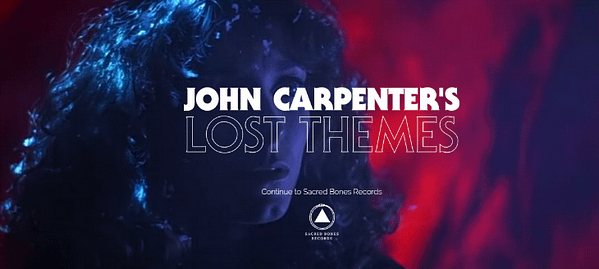
The first track, "Vortex", sounds like the overture to one of his films. I could envision it complimenting a credits sequence. It begins with a rising intro, similar sounding to Gyorgy Ligeti's "Overture: Atmospheres" famously used in 2001: A Space Odyssey, before transitioning into a mellow piano theme. Then the synths start up, followed by guitar riffs. It is a killer opening track. The mood is ominous and foreboding, but at the same time, the beat keeps you hooked. Something is coming. Something is going to happen. Probably bad.
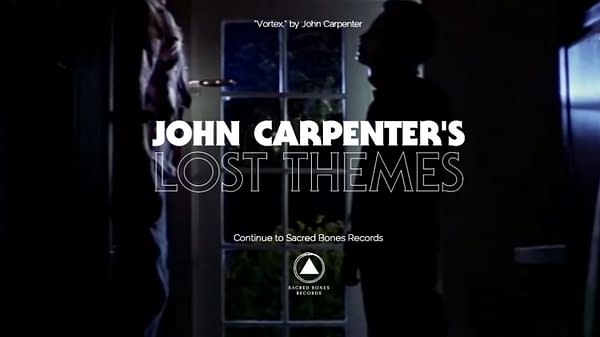
"Abyss", "Wraith" and "Purgatory" to me sound like classic Carpenter themes. The haunting but grooving synth sound distinctive to Carpenter drives them all. "Abyss" makes you feel like you are adrift in space, lost with no chance of return. "Wraith" features an eerie choir of angelic voices and closes out with a wailing guitar. "Purgatory" is mostly solemn piano and light synth, evoking traits of his soundtrack on The Thing and Escape from New York. The last two minutes take a change of pace with a King Crimson sounding drum and piano coupling.
"Night" is the closing track of the album and it may be the best track on the album. The aggressive, heavy synths that repeat throughout the song ooze with dread. Some additional synth and piano are layered in, but it never really departs from its sound. Though simple, it feels frantic, like something is pursuing you in the dark.
For fans of John Carpenter, this is a dream (nightmare?) come true. Despite the album having a fairly consistent sound to it, Carpenter really shines here. With the added bits of influence ranging from progressive rock, industrial and new wave, we get a really cool album not weighed down by the narrative of story. Carpenter is taking us on a haunting (and occasionally rocking) journey through his musically creative mind.
Dylan Gonzalez happens to love beer and comic books and luckily found a place to write about both because he has no idea how to actually make money in the real world. He lives in a cave in New Jersey, currently listening to "Lost Themes" on loop. Tweet him at @BeardedPickle, follow his own beer blog at http://boozegeek.tumblr.com/ or email him at dylan.gonzalez1990@gmail.com.











